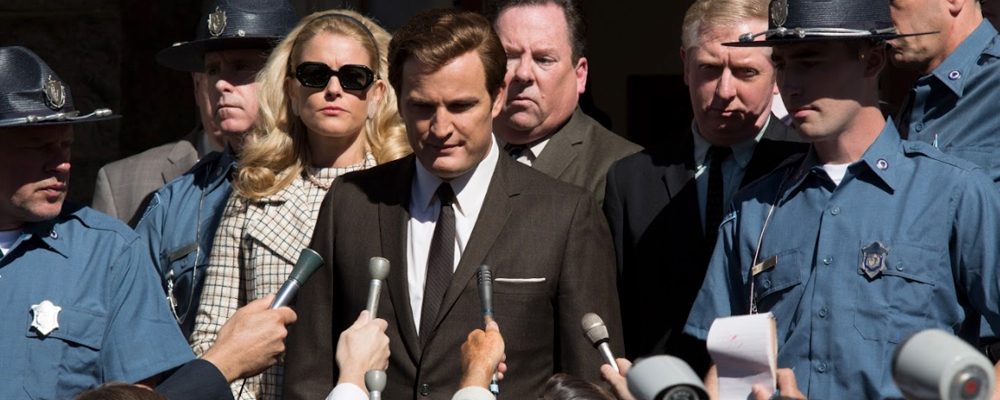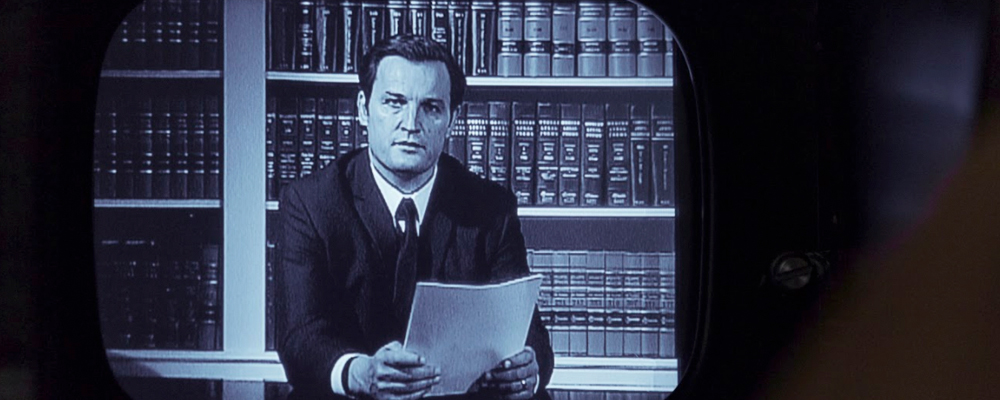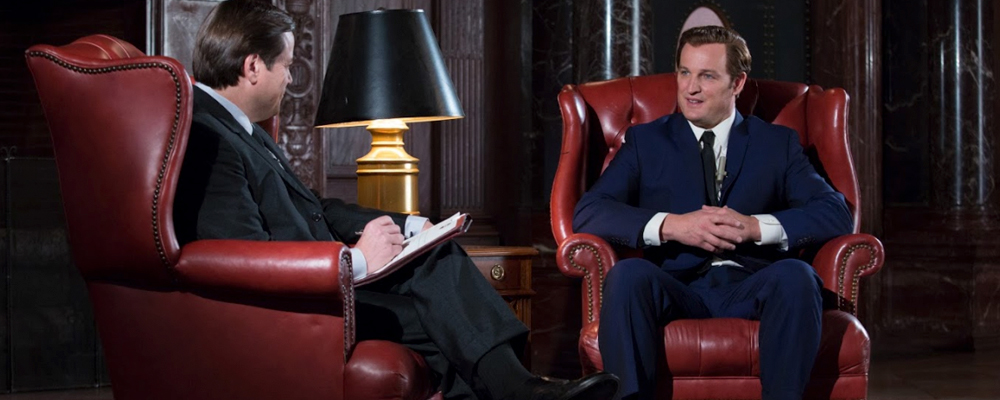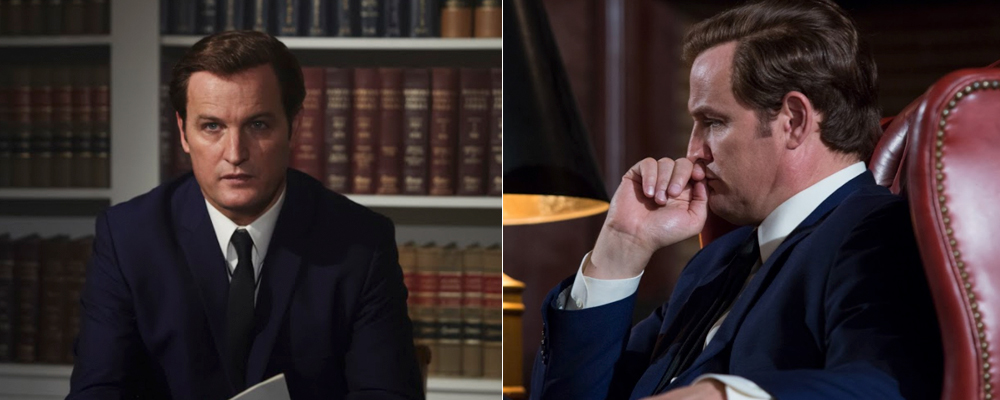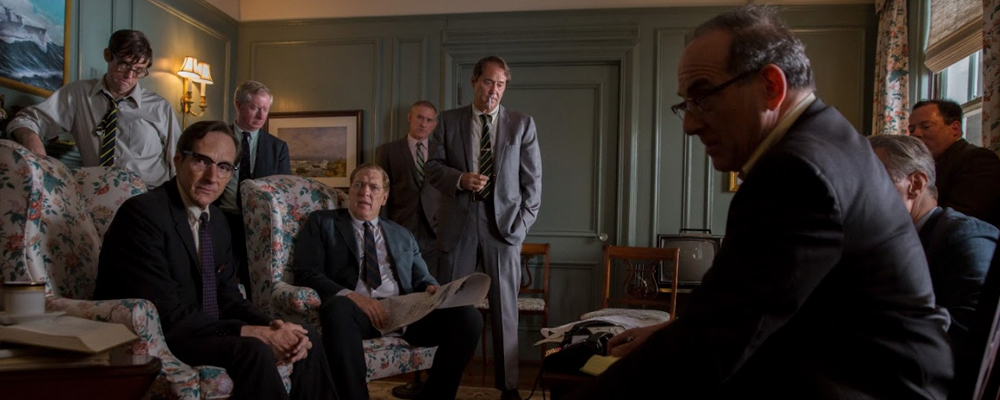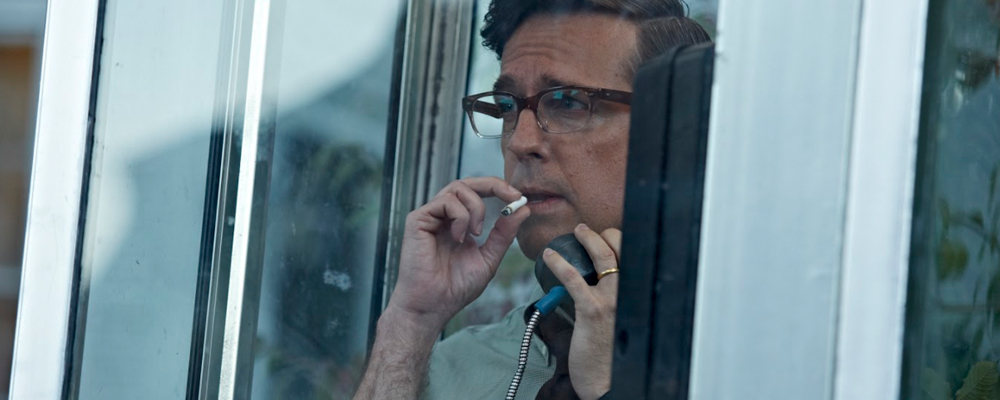‘Chappaquiddick’ Hauntingly Revisits Notorious Kennedy Scandal
Alci Rengifo
How astounding the lengths to which the powerful can go to cover up their own, bloody tracks. “Chappaquiddick” hauntingly recreates one of the great American political tragedies of the 1960s when Ted Kennedy, heir apparent to the White House, found himself having to answer for the death of a young woman in his overturned, sunken car. In the wrong hands this material could be spun into overwrought melodrama, but director John Curran has instead made an engrossing, sobering film about the machinations of power. At its center is an impressive performance by Jason Clarke, who does not imitate Kennedy but instead channels a man ruined by his very surroundings, trapping himself through nothing more than his own flaws.
It is the summer of 1969 and Senator Edward “Ted” Kennedy (Clarke) gathers with friends on the Massachusetts coast in Chappaquiddick. He is riding high as the youngest majority whip ever to hold the post in the U.S. Congress. With the memory of his slain brothers, President John F. Kennedy and Senator Robert Kennedy, fresh in the public consciousness, the pressure is on for Kennedy to aim for the White House. As his inner circle gathers to relax and also plan ahead for the big campaign, Kennedy encourages a strategist from his late brother Bobby’s team, Mary Jo Kopechne (Kate Mara) to come onboard. One night everyone is at a cottage, having a good time, Kennedy and Mary Jo wander off to his car and go for a drive. It ends in a crash and mortal tragedy, with Kennedy escaping from the wreck while Mary Jo is left to drown. At first he refuses to immediately report what has happened, until his confidants convince him there’s no choice. Once the police and divers find Kopechne all bets are off. With his career on the line, Kennedy’s inner circle begins an intricate campaign to blur the facts and save his image.
With “Chappaquiddick” Curran has achieved a rare, non-partisan study of tragedy and corruption. This would be a fully engrossing film even if there had never been a Ted Kennedy, but because this event did indeed take place it is a visceral, striking work of iconoclasm. The screenplay by Taylor Allen and Andrew Logan goes right into the inner sanctum of the main character, building an atmosphere of claustrophobia. What emerges is a portrait that sets itself apart from terms such as “Liberal” or “Democrat,” instead Kennedy is laid bare as a man so accustomed to influence and power that he expects his people to simply take care of any screw up. His cousin Joseph Gargan (Ed Helms) is practically bullied into fuzzing up the facts. When we meet the family patriarch, Joseph Kennedy (Bruce Dern), it is easy to see where the root of these habits lies. Incapacitated by a stroke, the film gives old Joe one single, diabolical line of dialogue whenever Ted calls for urgent advice, “alibi.” Curran captures with fine detail the attitudes and codas of the powerful. Joe calls in friends of influence who know how to coach Ted like a military operation, already adept at covering up unsavory screw ups. There is a truly dark fascination in watching the clan explore every alibi, explanation and bit of evidence to help one man get away with it. Kennedy is written not so much as a villain, but as an overgrown child who slips into villainy out of recklessness. The early scenes between him and Kopechne develop with ease flowing into awkwardness during which we can see how impulsive, unwise moves can spiral into terrible accidents.
This film has an immersive quality in its design. The editing builds a “Rashomon” effect as layer after layer of the story becomes clear as the narrative hurtles forward. Visually Curran’s style is baroque yet stark. Chappaquiddick itself feels like one last gasp of post-war America. The small-town vibe adds an extra eeriness to the nature of this entire tale, including the use of period music which sounds so bubble gum and innocent. There is a jarring power to a moment where Kopechne’s body is raised out of the darkened lake, and how it contrasts to the humble, small town demeanor of the place. Even more jarring is the way Curran intercuts Kennedy running to safety, taking the time to sleep and shower, with moments inside the sinking car as Kapochne struggles for oxygen. The impact isn’t mere suspense, but overbearing tragedy, because we see the human lives beneath scandalous headlines. Cinematographer Maryse Alberti uses shadows worthy of a noir for night scenes and overly clean palettes which are almost mockingly innocent for daytime moments.
For Jason Clarke his role as Ted Kennedy marks a milestone in a career already gaining recognition for strong turns in films such as “Mudbound.” He evokes Ted Kennedy with a keen sense of complexity. He is both eloquent but calculating. He is not above putting on a neck brace to give the illusion of an injury at Kopechne’s funeral, and beneath the sunny rhetoric of political speeches a look of uncertainty, a nervous smile, an impatient fit reveal a career politician for whom the office and name brand come first. Clarke masters the mannerisms and accent, but like Anthony Hopkins in Oliver Stone’s “Nixon,” he isn’t going for mere imitation. He channels a historical figure and thereby creates an intriguing personality.
The rest of the cast is stellar. Jim Gaffigan delivers a rare for him dramatic role as Kennedy confidant Paul Markham, who is easily pushed by Ted into helping haze the facts. Clancy Brown is cold, sober malevolence as former defense secretary Robert McNamara, meticulously guiding Kennedy to cover his tracks. Kate Mara as Kopechne plays the victim of this macabre story with the touching air of someone intelligent and talented, wasted away because of someone else’s selfishness. But the film’s most piercingly vile persona is Bruce Dern as Joseph Kennedy. Contorted, his face a rictus of salivating arrogance, Dern looks like the patriarch from hell, demanding Ted act like “the head of the family” via scribbled notes.
“Chappaquiddick” has a special relevance amid current cultural debates. It is not far-fetched to say a film set in 1969 is even more meaningful in the age of #MeToo. Ted Kennedy went on to a glowing Senate career, although the 1980 presidential nomination was eventually denied to him. The film doesn’t take some partisan stance in terms of political parties or even ideologies. Instead it is dramatizing an incident involving a powerful man and a young woman. It ponders the question of what lengths would anyone go to protect their status and ambitions. A young woman died and became another footnote in the annals of American power. What if the other person in the car had been anyone other than Ted Kennedy?
“Chappaquiddick” opens April 6 in theaters nationwide.

